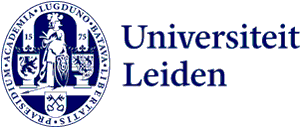David Fontijn was nominated for University Teaching Prize: ‘I cut my online lectures in manageable chunks’
Archaeologist David Fontijn was nominated for the University Teaching Prize. His students nominated him for this award for his innovative ways of online teaching. In the corona-year 2020-2021 he gave a new course and experimented with the way he taught. ‘It clearly appealed to the students, so we are on the right path in our experimentation with education.’

How Deep History Shaped the Human World
In the corona-year 2020-2021, Professor Fontijn taught the course How Deep History Shaped the Human World. It was one of the courses that led to his nomination for the Teaching Prize. ‘The whole course was an experiment in itself. It is one of the first times that I gave a course on the prehistory of the entire world.’ The contents of the course would already be challenging in a regular year, but in a time where most teaching is online, the difficulties almost seemed insurmountable.
Different way
In the Summer of 2020, while preparing for the course, Fontijn started to experiment with the way he shaped the lectures. ‘I decided to do things in a completely different way.’ He discussed online teaching with many experienced colleagues, and crossed the mental threshold to reinvent his way of teaching. ‘First I went back to the course’s core. What did I want to give to the students? What did they need to think about?’ Shaping the course, he tried to keep it relevant to the students’ experiences. ‘I linked the contents to the problems of our times: climate change, migration, environmental concerns. All these problems have very clear roots, and these lie for a very important part in our deep history.’

Personal interests
Thus he established the contents of the course, but what about the teaching’s form? ‘First of all, I cut everything in manageable chunks. Lectures should not take longer than 5 or 10 minutes.’ He recorded short videos about the various topics, always focused on the central questions that the students had to deal with. ‘Then we would meet online and have a discussion on 1 or 2 of these questions, never longer than an hour.’ In order to keep it personal, he divided his students in four groups, and held this discussion four times. ‘This increased the quality of interaction enormously. I also had informal talks with the students about their interests and motivations. This helped me to speak to students directly during the course, addressing their personal interests.’ All in the hope that students would not feel lost in this online education. The result was a perfect synergy between student and teacher.

Patience
Student-focused as he is, Fontijn addresses the students directly. ‘I would like to thank our students. They have been very patient allowing us to make mistakes. Things were not always good, but they appreciated that most of the teachers did their utmost best. I know you had a tough time, thank you for taking your patience. I am very happy to see each other face to face again.’
Simple structure
For his colleagues, he has the same tip that Aris Politopoulos, the Faculty’s lecturer who was nominated for the Teaching Prize of 2019-2020, gave last year. ‘I really took his tip to heart. He said you should have a very good, simple structure in your lectures. That is something that I really would like to express to other people that do online teaching.’ He stresses that online teaching is not suitable for diversions or lengthy expositions. ‘Do not spend longer than 5 minutes on a topic, and see to it that people start to talk about it as a group. When you have achieved this, things will start to run.’
LUS Teaching Prize
During the ceremony of the Opening of the Academic Year in the Pieterskerk, the Teaching Prize was awarded to Ayo Adedokun.
